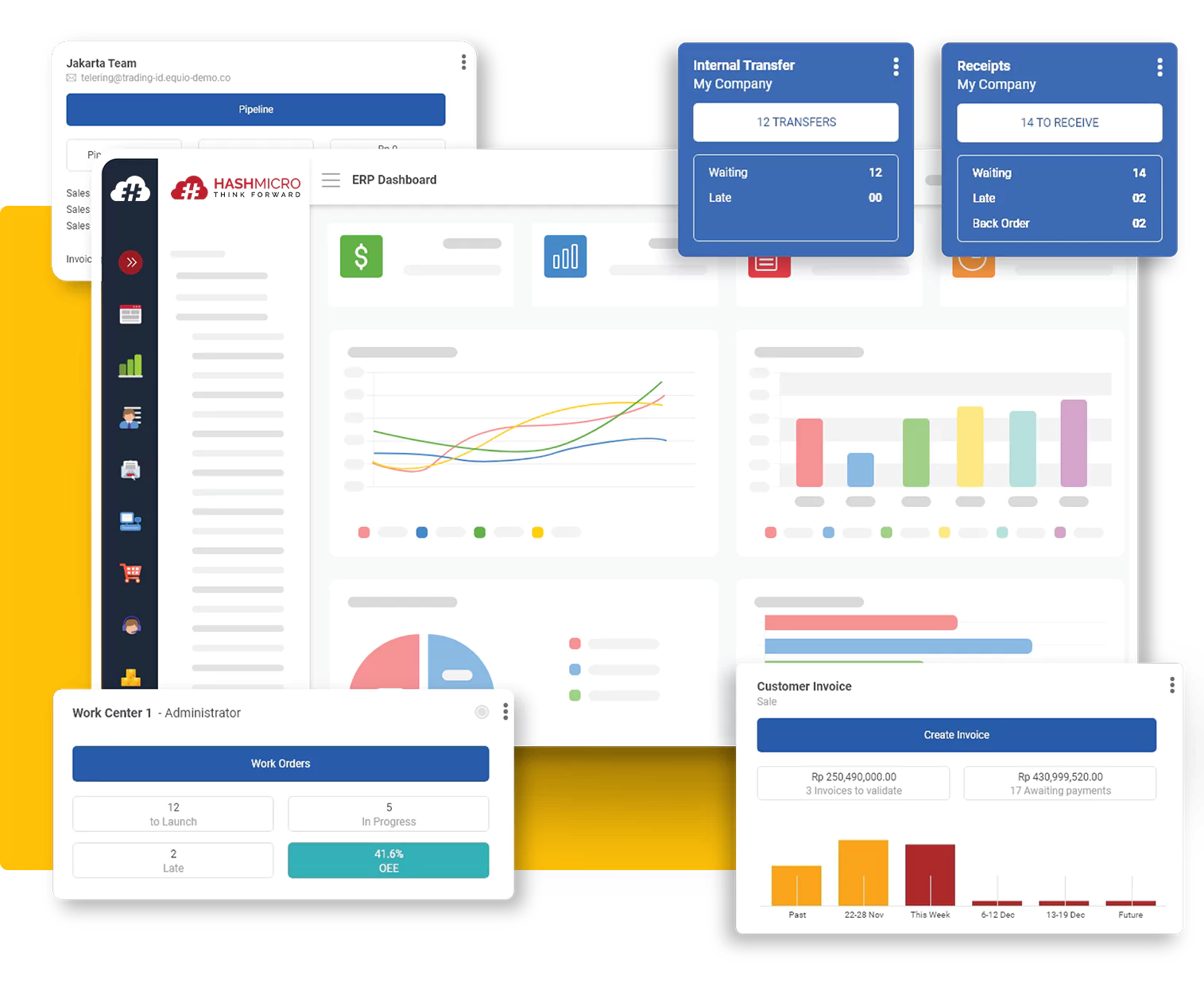In today’s fast-paced digital world, online payments and transactions are becoming more crucial than ever. As consumers increasingly prefer convenient, secure, and accessible payment methods, the role of digital wallets in reshaping the financial landscape cannot be overstated.
Digital wallets, or e-wallets, have quickly emerged as the go-to solution for seamless transactions, offering a variety of benefits over traditional methods. From enhanced security features to the convenience of storing multiple payment methods in one place, digital wallets are poised to revolutionize how we manage and transfer money.
Table of Content:
Table of Content
What are Digital Wallets?
A digital wallet is a software-based system that securely stores users’ payment information and passwords for numerous payment methods and websites. It is also known as an e-wallet, as it serves as a virtual version of a physical wallet. Digital wallets are typically used to make online purchases, store loyalty cards, manage cryptocurrencies, and even make in-person payments through near-field communication (NFC) technology.
The rise of digital wallets can be attributed to the growing demand for easy-to-use, secure, and efficient payment systems. With the increasing reliance on smartphones, e-wallets have made it easier for consumers to make purchases, manage transactions, and even transfer money across borders in a matter of seconds.
Types of Digital Wallets
There are two main types of digital wallets: closed wallets and open wallets.
- Closed Wallets: These are wallets that can only be used within a particular platform or store. For example, digital wallets from specific retailers like Amazon or Starbucks are considered closed wallets. They allow customers to store funds within the platform and use them for purchases only within that ecosystem.
- Open Wallets: These are digital wallets that are not limited to one platform or brand. They can be used across various retailers and service providers, making them more versatile. Examples include Apple Pay, Google Wallet, and PayPal. Open wallets link to users’ credit or debit cards, allowing them to make payments anywhere that accepts the e-wallet’s payment system.
Additionally, digital wallets can be categorized as software-based or hardware-based:
- Software-Based Wallets: These wallets are stored in an app or online platform. They can be downloaded to smartphones, computers, or even used through a browser. Examples of software-based wallets include PayPal, Venmo, and Google Pay.
- Hardware-Based Wallets: These are physical devices that store digital assets offline, providing an added layer of security. They are typically used for cryptocurrency storage and are considered one of the safest ways to store private keys. Examples include Ledger and Trezor hardware wallets.
How Digital Wallets Work
Digital wallets work by securely storing payment information, including credit card details, debit card numbers, and bank account information. When a consumer makes a transaction, the wallet interacts with the payment gateway to authorize and complete the purchase.
Digital wallets use encryption protocols and tokenization techniques to protect sensitive information, ensuring that users’ data is kept safe. Here’s a basic rundown of how a digital wallet functions:
- Linking Payment Methods: Users link their credit cards, debit cards, or bank accounts to their digital wallets. This allows the wallet to make payments on behalf of the user without needing to manually enter payment details every time.
- Transaction Authorization: When making a payment, the wallet encrypts the payment details and sends them to the payment gateway. The gateway validates the transaction and transfers the payment to the seller.
- Authentication: To ensure secure transactions, digital wallets often incorporate authentication methods, such as fingerprint recognition, face recognition, or a pin code.
- Transaction Completion: Once the transaction is verified, the digital wallet completes the payment and sends a confirmation to both the buyer and the seller.
One of the biggest advantages of digital wallets is their ability to integrate multiple forms of payment, such as credit cards, debit cards, and even cryptocurrencies. This offers flexibility and convenience for consumers who want to manage all their financial accounts in one place.
Advantages of Digital Wallets
Digital wallets also have several advantages such as:
- Convenience: Digital wallets offer the ultimate convenience, enabling consumers to make payments with just a tap or click. With the ability to store multiple payment methods, users no longer need to carry physical cards or enter payment information each time they make a transaction.
- Enhanced Security: Digital wallets use advanced security measures, including encryption and tokenization, to protect users’ financial information. Many wallets also incorporate biometric authentication (fingerprint or facial recognition) or PIN codes to further secure the payment process.
- Speed: Digital wallet transactions are processed quickly, allowing for instant payments and transfers. This is especially beneficial for consumers who want to complete purchases without delays or interruptions.
- Reduced Fraud Risk: Traditional credit card payments expose consumers to the risk of fraud. Digital wallets, on the other hand, use secure encryption techniques that protect users’ sensitive data. With tokenization, the wallet generates a unique code for each transaction, ensuring that card details are never shared or exposed during the transaction.
- Cross-Border Transactions: Digital wallets make international payments easier and more affordable. Users can store multiple currencies and transfer funds across borders with little to no additional fees.
- Loyalty Programs and Rewards: Many digital wallets come with integrated loyalty programs, allowing users to earn rewards or discounts on their purchases. This feature enhances the overall user experience by providing added value to every transaction.
- Integration with Other Services: Digital wallets can also integrate with other services, such as e-commerce platforms, loyalty programs, and even cryptocurrency exchanges. For example, you can link your digital wallet to an online shopping platform and earn rewards with each purchase.
Digital Wallets and Their Role in E-Commerce
As the e-commerce industry continues to expand, digital wallets are becoming an integral part of the shopping experience. Consumers are increasingly opting for digital wallets because they offer a faster and more convenient way to check out compared to traditional credit cards or bank transfers.
For e-commerce businesses, accepting digital wallet payments opens up new opportunities for attracting customers. Not only do digital wallets streamline the checkout process, but they also help reduce cart abandonment rates. Studies have shown that customers are more likely to complete their purchases when offered a quick and easy payment method like digital wallets.
For businesses that deal with high transaction volumes or operate in multiple countries, digital wallets offer a significant advantage in terms of international payments. They allow customers from all over the world to make payments in their preferred currency, making it easier to cater to a global customer base.
Moreover, digital wallets can help businesses gain valuable insights into consumer behavior. By analyzing transaction data, businesses can optimize their marketing strategies and offer personalized promotions to their customers.
The Future of Digital Wallets
Looking ahead, digital wallets are set to become even more prevalent as technology continues to evolve. As mobile payments and digital currencies grow in popularity, we can expect digital wallets to offer even more advanced features, such as integration with artificial intelligence, biometric authentication, and advanced fraud protection systems.
The increasing reliance on mobile devices and smart technologies will also drive the adoption of digital wallets in everyday transactions. Consumers will continue to prioritize speed, convenience, and security, and digital wallets are well-positioned to meet these demands.
For businesses, adopting digital wallets as a payment option will become more of a necessity than a luxury. As more customers embrace e-commerce, offering digital wallet payments will be crucial for staying competitive in the marketplace.
One important element in this technological landscape is the role of proxies in ensuring secure transactions. By using tools like buy static residential proxies, businesses can enhance security and privacy when processing payments and protecting sensitive customer data. Static residential proxies offer enhanced protection by masking real IP addresses, making it more difficult for malicious entities to compromise data.
How ERP Software Streamlines Financial Transactions Through Digital Wallets
In the evolving landscape of digital transactions, integrating digital wallets with Enterprise Resource Planning (ERP) software presents a strategic advantage for businesses aiming to enhance their financial operations and customer service.
This integration not only streamlines transaction processes but also significantly improves data accuracy and security. Below, we explore how ERP software facilitates these enhancements through digital wallets.
1. Centralized Transaction Management
ERP systems excel in centralizing business operations, and this extends to the management of financial transactions through digital wallets. By integrating digital wallets, an ERP system can automatically record each transaction directly into the financial module.
This means payments made via digital wallets are instantly reflected in the system without manual data entry. Such integration reduces the likelihood of human errors and provides real-time visibility into the financial status of the company, enabling more accurate forecasting and budgeting.
2. Enhanced Security Measures
Security is paramount in financial transactions, and ERP software contributes an additional layer of security when integrated with digital wallets. ERP systems typically include robust security protocols such as end-to-end encryption and multi-factor authentication, which safeguard sensitive financial information.
When transactions are processed through digital wallets integrated with ERP systems, these security measures are automatically implemented, ensuring that financial data remains protected against unauthorized access and cyber threats.
3. Improved Financial Reporting and Compliance
ERP software simplifies the complexity of financial reporting and ensures compliance with accounting standards and regulations. When digital wallets are integrated, the ERP system can automatically categorize and reconcile transactions according to the set accounting principles.
This automatic processing not only speeds up the reporting cycle but also ensures that the reports are compliant with financial regulations, reducing the risk of penalties or errors during audits.
4. Streamlined International Transactions
For businesses engaging in international transactions, ERP systems integrated with digital wallets can manage multiple currencies and automatically calculate exchange rates, reducing the complexities associated with global trade.
This capability ensures that international payments processed through digital wallets are accurately recorded in the ERP system, enabling businesses to maintain precise financial records and manage their international finances more efficiently.
5. Enhanced Customer Experience
Integrating digital wallets into ERP systems not only benefits the financial operations of a business but also enhances the overall customer experience. Customers enjoy the convenience and speed of payments via digital wallets, and when these are seamlessly integrated with the business’s ERP system, it ensures that the customer’s financial interactions are smooth and error-free.
Conclusion
Digital wallets are revolutionizing the way we make payments and conduct transactions. With the convenience of storing multiple payment methods, enhanced security features, and the ability to integrate with cryptocurrencies, digital wallets are poised to become the future of finance.
As the world continues to embrace digital transformation, the role of digital wallets in facilitating secure, seamless, and efficient transactions will only grow. The future of online payments is here, and it’s digital.
The integration of digital wallets with ERP software represents a significant step forward in the management of financial transactions. This synergy not only streamlines operations but also enhances security, compliance, and customer satisfaction.
HashMicro ERP software stands out in this integration by offering a customizable and scalable platform tailored to the unique needs of each business. Whether your company operates on a local scale or globally, HashMicro’s ERP system is designed to adapt and grow with your business, handling all transactions with unmatched efficiency and accuracy. Try the free demo now!





































